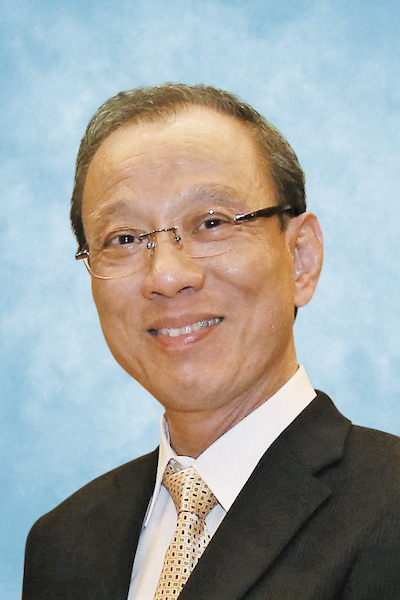大腸癌——中醫治療
Information provided/updated by:
Dr. Yu Chau Leung, Edwin,
Honorary President of the Hong Kong Association for Integration of Chinese and Western Medicine,
Registered Western Medicine Practitioner,
Registered Chinese Medicine Practitioner

Introduction:
In this article, Dr. Yu Chau Leung, Edwin introduces us to how traditional Chinese medicine treats colorectal cancer from a Chinese medicine perspective.
A. Overview (including organs, systems, and the use and differences of Chinese and Western medical terms)
B. Cause of Disease/Symptoms/Diagnosis
C. Treatments
A. Overview (including organs, systems, and the use and differences of Chinese and Western medical terms)
Colorectal cancer is more common in middle-aged and elderly people, but in recent years there has been a trend towards younger patients, probably related to Western dietary patterns. The "Huangdi Neijing" has already proposed that "overeating harms the stomach and intestines"; scientific research has proven that the formation of colorectal cancer is related to intestinal bacteria. In Chinese medicine literature, terms such as "intestinal accumulation", "lower abdominal mass (in woman)", "aggregation-accumulation", and "locked hemorrhoid" are used to refer to colorectal cancer.
B. Cause of Disease/Symptoms/Diagnosis
[Cancer Transformation]
Colorectal cancer includes colon cancer and rectal cancer. Symptoms can include blood in the stool, changes in bowel habits, etc. Some people are unaware of the cancer transformation and only discover it through fecal occult blood tests or colonoscopy. Colonoscopy screening for colorectal cancer aims to detect and treat the disease early. The examination directly observes the entire colon and can even take live tissue samples for testing to determine the pathological type, making it an effective screening and diagnostic method for patients. Adenocarcinoma is the most common type of colorectal cancer. Colorectal cancer usually originates from benign polyps, but some polyps gradually progress into malignant colorectal cancer over time. Removing polyps is a major step in prevention.
[Traditional Chinese Medicine View]
There are internal and external causes. In terms of internal causes, it is believed that deficiency of healthy qi and emotional disorder can lead to cancer; in terms of external causes, exposure to external pathogens and dietary damage are the main reasons. Deficiency refers to the decline of the body's ability to resist disease, and the dysfunction of the spleen, stomach and other viscera and bowels. Emotional disorder further affects the smooth flow of qi, leading to stagnation of qi and blood. Dietary impact can be multifaceted, often eating rich and heavy food, raw and cold, greasy and fried food, dampness-heat or phlegm-dampness will accumulate in the intestines, especially nowadays with added flavorings, street food soaked in soup, such as noodle soup or rice noodles, even if it is "clear" soup, in fact, most of them have added a lot of MSG or other chemical flavors to replace MSG. On the one hand, it makes the intestinal flora deteriorate, affects the imbalance of the spleen and intestinal immune system and the whole body, on the other hand, it damages the spleen and stomach. Research has found that with long-term consumption of red meat, the bacteria that cause inflammation in the large intestine will increase, leading to long-term inflammation of the large intestinal mucosa, accelerating the formation of intestinal polyps and tumors. Grilled and fried red meat will release carcinogens, such as polycyclic aromatic hydrocarbons, leading to the formation of cancerous lumps. Due to the disorder of the spleen and kidney, the obstruction of dampness and turbidity, the downward flow of dampness-heat, the deficiency of spleen-kidney yang or liver-kidney yin, over time, it will form cancerous tumors.
[Syndrome]
The causes and mechanisms of disease, including "deficiency", "toxin", "dampness", "stasis" and "phlegm". Syndrome differentiation includes qi stagnation and blood stasis, dampness-heat accumulation, phlegm and stasis mutual knot, spleen-kidney yang deficiency, liver-kidney yin deficiency and other syndrome types. It can be differentiated according to abdominal pain, diarrhea, and stool characteristics. Those with excess syndrome are mostly large intestinal dampness-heat, or combined with stasis and toxin internal knot. Symptoms include abdominal pain and distension, mucus in stool or bloody stool, anal burning, red or dark purple tongue, yellow greasy fur, etc., Treatment is mainly to clear heat and drain dampness, remove stasis and detoxify. Those with deficiency syndrome are mainly characterized by dual deficiency of qi and blood, symptoms include pale complexion, thin body shape, fatigue and lack of strength, dull abdominal pain, loose stool, pale tongue with white fur, or tooth marks, deep and thin pulse, etc.
Cancer often has complex conditions. There are various TCM syndromes, such as dampness-heat accumulation, large intestinal stasis, stasis and toxin internal obstruction, and other spleen-stomach weakness patterns. Deficiency-excess complex, there will be dual deficiency of qi and blood syndrome, liver-kidney yin deficiency syndrome, qi deficiency with blood stasis syndrome, spleen-kidney yang deficiency syndrome, etc. It is particularly worth mentioning that blood stasis syndrome is a factor in the metastasis of colorectal cancer.
C. Treatments
Using cell biology and molecular biology experiments, the interaction between Chinese medicine ingredients and Western medicine from a pharmacological perspective has been studied. The results have proven that some ingredients in Chinese herbal medicine can reduce the drug resistance of drug-resistant cancer cells and increase the sensitivity of cancer cells to chemotherapy drugs.
1. Early-stage colorectal cancer
For early-stage colorectal cancer patients, the tumor is removed by surgery. For the treatment of colorectal cancer, if it is still limited to the intestinal wall, surgical cure is the best method. The use of Chinese medicine is considered to prevent the spread of cancer cells that are not visible in the pathological section examination and to clear them. It is only considered when the diagnostic facilities of some patients are insufficient.
Early treatment methods focus on clearing dampness-heat, regulating qi and blood, and detoxifying and anti-cancer;
2. Late-stage colorectal cancer
At the treatable stage of cancer, the main treatment methods include surgery, radiation therapy, chemotherapy, and targeted therapy or a combination of the above treatments. Blood tests include carcinoembryonic antigen (CEA), which can be used to monitor disease progression and recurrence.
Chinese medicine at this stage mainly alleviates the discomfort and reactions during Western medical treatment and the physical discomfort of patients who have not yet rehabilitated.
Traditional Chinese medicine treatment uses Chinese medicine and acupuncture to relieve fatigue, pain, constipation, loss of appetite, insomnia, lymphedema, and other adverse symptoms in cancer patients. Traditional Chinese medicine will benefit appetite, bowel movements, spirit, physical strength, pain, etc. The treatment methods include clearing heat and detoxifying, activating blood and resolving stasis, softening hardness and dissipating binds, inducing diuresis to drain dampness, and reducing swelling and relieving pain.
In the late stage, due to the gradual decline of qi and blood, the treatment is mainly to fortify the spleen and regulate qi, nourish the liver and kidney, tonify qi and replenish blood, and astringe and solidify.
3. Advanced colorectal cancer
Traditional Chinese medicine is a direct choice for late-stage patients (those who are not suitable for surgery and chemotherapy, and those who have poor recurrence after Western medical treatment). It can not only alleviate the uncomfortable symptoms of cancer; moreover, it can also treat various traditional Chinese medicine syndromes that occur with colorectal cancer, such as dampness-heat accumulation, large intestine stasis, and stasis-toxin internal obstruction. At the same time, improving the symptoms or physical fitness of the body's intestines can also help patients survive and improve their physical and mental health.
[Chinese medicine]
Clearing heat and dampness, resolving stasis and detoxifying method, often use drugs such as Tengli root, Banzhilian, raw Yi Yi Ren, etc., which clear heat, detoxify and dampness. Those with bloody stools can add Xianhe grass, Diyu, etc. to cool the blood and stop bleeding.
In the treatment of deficiency syndrome, tonify qi, nourish blood, strengthen the spleen and kidney, and often use prescriptions such as Si Jun Zi Tang, Ba Zhen Tang, Si Shen Wan, etc. The commonly used medicines include Dang Shen, fried Bai Zhu, Fu Ling, cooked Yi Yi Ren, etc.
Anti-tumor Chinese medicine often has the characteristics and effects of clearing heat and detoxifying, activating blood and removing stasis, softening hardness and dissipating binds, or reinforcing the healthy qi. Medicines for colorectal cancer include: Xi Shu, Chun Gen Pi, Teng Li Gen; Zhong Jie Feng; Huang Yao Zi, Bai Jiang Can; Ban Bian Lian; Yi Yi Ren, Hou Tou Gu; Xiang Ye Tian Zhu Kui, etc.
Of course, Chinese medicine emphasizes overall conditioning, so the diagnosis and treatment of traditional Chinese medicine doctors are considered excess.
(January 2021)




